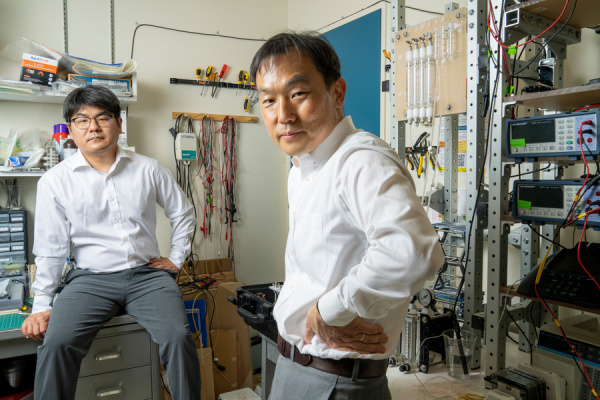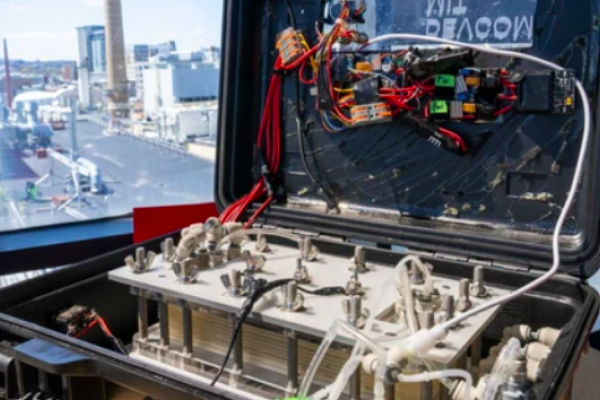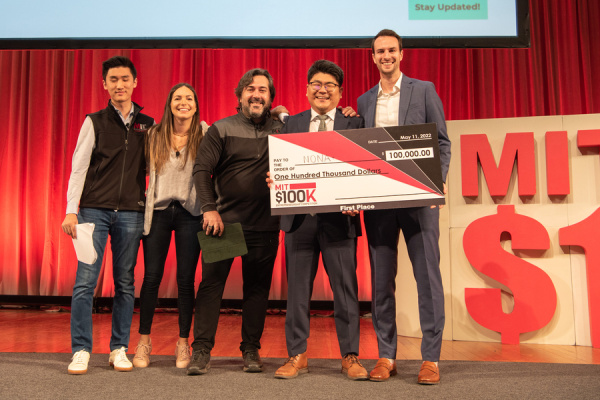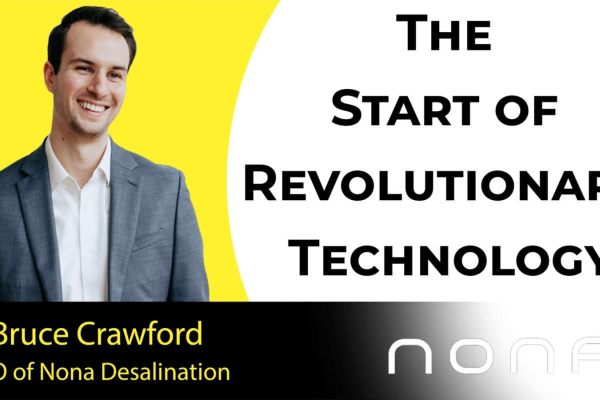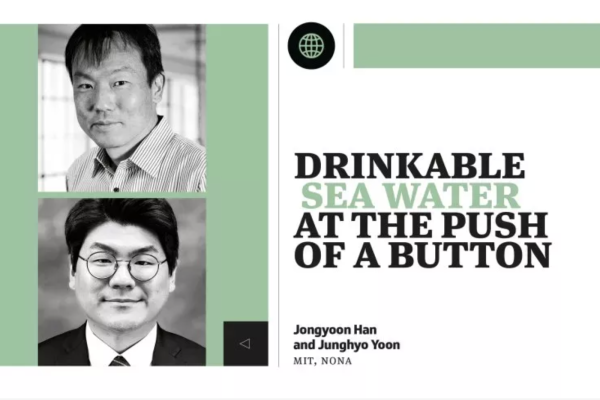Our Research Off-grid portable ion concentration polarization desalination unit
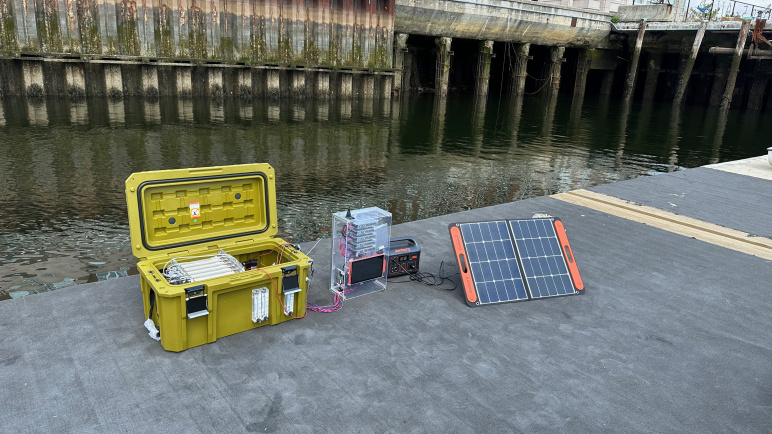
Field test of a 10 LPH portable desalination system
Principal Investigator
Jongyoon Han
- Professor of Electrical Engineering
- Professor of Biological Engineering
- Department of Electrical Engineering and Computer Science
- Department of Biological Engineering
Jongyoon Han is currently a professor in the Department of Electrical Engineering and Computer Science and the Department of Biological Engineering at the Massachusetts Institute of Technology. He received both BS and MS degrees in physics from Seoul National University, Seoul, Korea, and a PhD in applied physics from Cornell University in 2001. He won the NSF CAREER award in 2003, and the Analytical Chemistry Young Innovator Award in 2009. His research is mainly focused on applying micro/nanofabrication techniques to a very diverse set of fields and industries, including biosensing, desalination/water purification, biomanufacturing, dentistry, and neuroscience.
Challenge:
Why are we still using several billion plastic bottles of water, when they are expensive to ship, and environmentally disastrous?
Research Strategy
- Develop a sustainable and economical bottled water alternative for various critical (cost-insensitive) applications that is at least 5X lower system cost than other commercial alternatives
- Cultivate a truly portable and low-maintenance desalination system capable of removing both salts and larger particles, and other contaminants
- Deploy prototypes to various field-operation scenarios for gathering user experiences
Project description
The water purifiers market is expected to grow from $45.0B in 2019 to $90.1B in 2025 with the decline of freshwater availability. However, the current products on the market (e.g., household reverse osmosis) are limited to treat low salinity feed (< 1 g/L, < 1 NTU), which is not adequate for addressing emerging challenges, such as salinization (e.g., groundwater in California) and sudden disaster (e.g., Flint water crisis). Building on the recent progress in the ion concentration polarization process, we completed a fully functional prototype of a portable desalination system. It is a compact (~ 1.5 ft3) and lightweight (< 10 kg) apparatus capable of removing dissolved (up to 45 g/L) and suspended solids (up to 30 NTU) altogether from brackish water and seawater to yield potable water (< 0.5 g/L) at the rate of 1 L/h. At the end of the project, the next-generation prototype and its performance will be demonstrated, and the mass production strategy and business model will be established. The target prototype will have 1 L/h per cartridge (stackable up to 10 cartridges, ~10 L/h). It will be useable in both installed and remote field settings with renewable power options (solar panel).
Outcomes
- Created a functional prototype desalination system that has a production capacity of 10 liters per hour (LPH) and consists of the following components: 5-micron pre-filter, 10 LPH ICP desalination module, one feed pump and two outlet pumps, a controller, and a solar-powered battery
- Tested the prototype using natural seawater in Boston Harbor and effectively generated drinking water of high quality, achieving a specific energy consumption rate of 20 watt-hours per liter (Wh/L)
- Carried out business and product developments, including market definition and customer discovery, and participated in venture accelerator programs
- Commercialized the portable desalination technology through the establishment of a company called NONA Technologies, which has won numerous awards and attracted attention from potential investors
Publications
Portable seawater desalination system for generating drinkable water in remote locations
Junghyo Yoon, Hyukjin J. Kwon, SungKu Kang, Eric Brack, and Jongyoon Han, Environmental Science and Technology, 2022
News
Spinout Company
Nona+ Desalination

NONA separates salt & bacteria from water using electric current, so water never passes through a membrane. Our underlying technology is called Ion Concentration Polarization (ICP), a novel electro membrane fluid separation method developed at MIT. NONA is the first commercial application of this technological breakthrough.
Additional Details
Impact Areas
- Water
Research Themes
- Water Purification & Desalination
Year Funded
- 2021
Grant Type
- Solutions Grant
Status
- Completed

